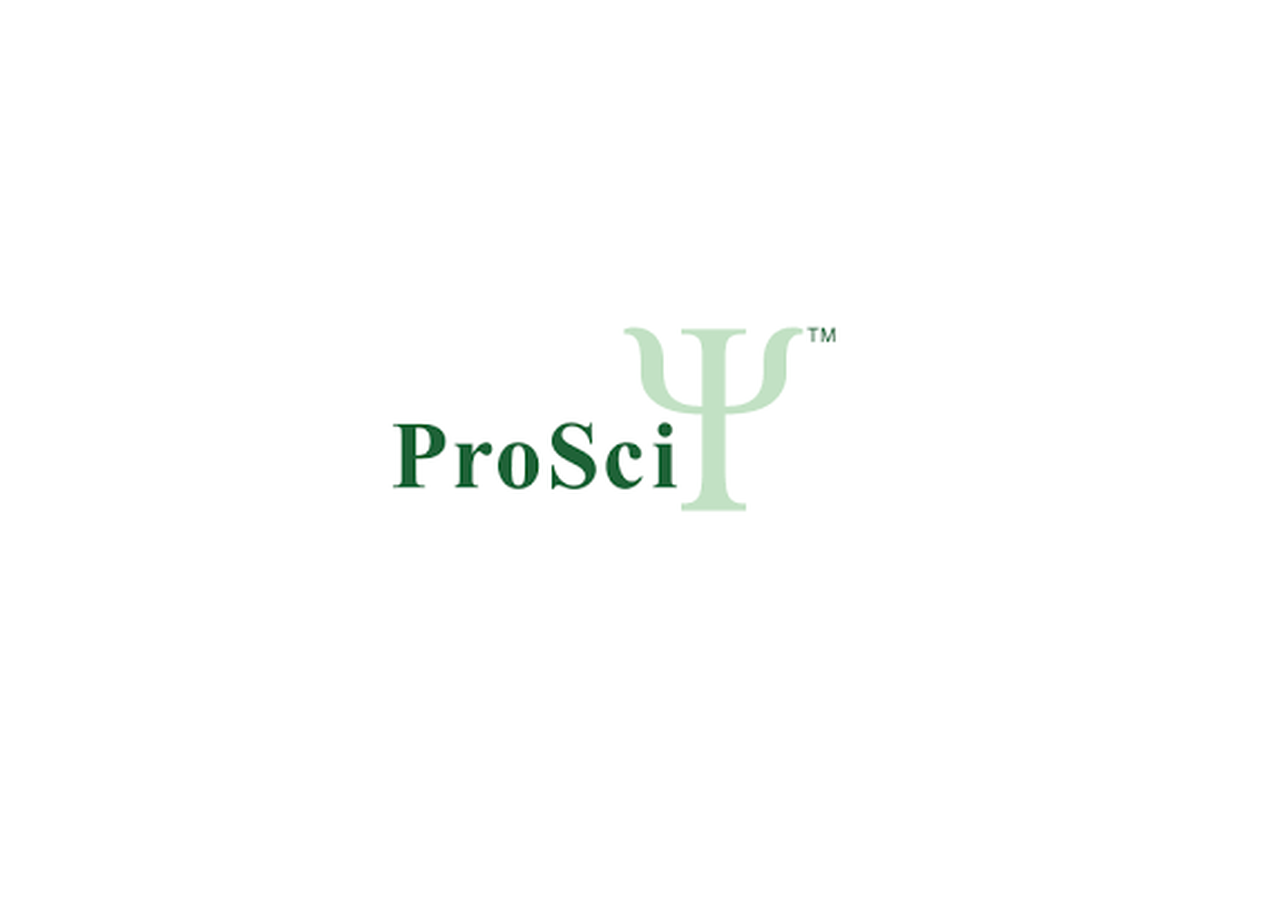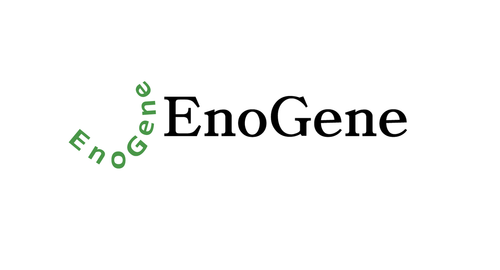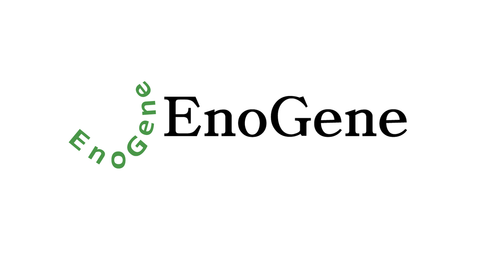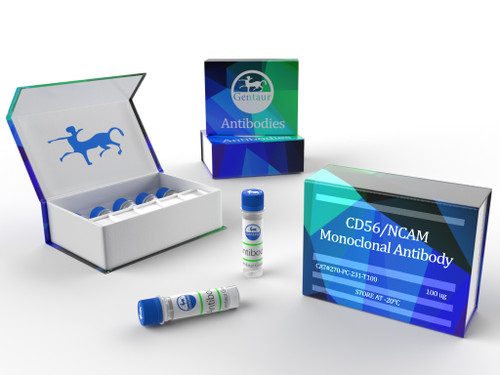Product Description
CD56 (NCAM) Antibody | 79-666 | ProSci
Host: Rabbit
Reactivity: Human, Mouse
Homology: N/A
Immunogen: CD56 (NCAM) antibody was raised against a peptide sequence around aa.850~854 (Q-T-K-E-N) derived from Human CD56 (NCAM) .
Research Area: Other
Tested Application: WB
Application: Western Blot: 1:500~1:1000
Specificiy: This antibody detects endogenous levels of total NCAM protein.
Positive Control 1: N/A
Positive Control 2: N/A
Positive Control 3: N/A
Positive Control 4: N/A
Positive Control 5: N/A
Positive Control 6: N/A
Molecular Weight: 120 - 220 kDa
Validation: N/A
Isoform: N/A
Purification: Antibodies were purified by affinity-chromatography using epitope-specific peptide.
Clonality: Polyclonal
Clone: N/A
Isotype: N/A
Conjugate: Unconjugated
Physical State: Liquid
Buffer: Antibody supplied in phosphate buffered saline (without Mg2+ and Ca2+) , pH 7.4, 150mM NaCl, 0.02% sodium azide and 50% glycerol.
Concentration: 1 mg/mL
Storage Condition: Store antibody at -20˚C for up to one year.
Alternate Name: CD56, NCAM, MSK39, STK14A, NCAM1
User Note: N/A
BACKGROUND: NCAM (neural cell adhesion molecule, CD56) is an adhesion glycoprotein with five extracellular immunoglobulin-like domains followed by two fibronectin type III repeats. Structural diversity is introduced by alternative splicing resulting in different cytoplasmic domains (1) . NCAM mediates neuronal attachment, neurite extension and cell-cell interactions through homo and heterophilic interactions. PSA (polysialic acid) post-translationally modifies NCAM and increases the metastatic potential of small cell lung carcinoma, Wilms+ tumor, neuroblastoma and rhabdomyosarcoma (2) . CD56 and CD16 are commonly used to identify NK cells although some cells with the T cell markers CD3 and CD4 also express CD56 (3) .
 Euro
Euro
 USD
USD
 British Pound
British Pound
 NULL
NULL














